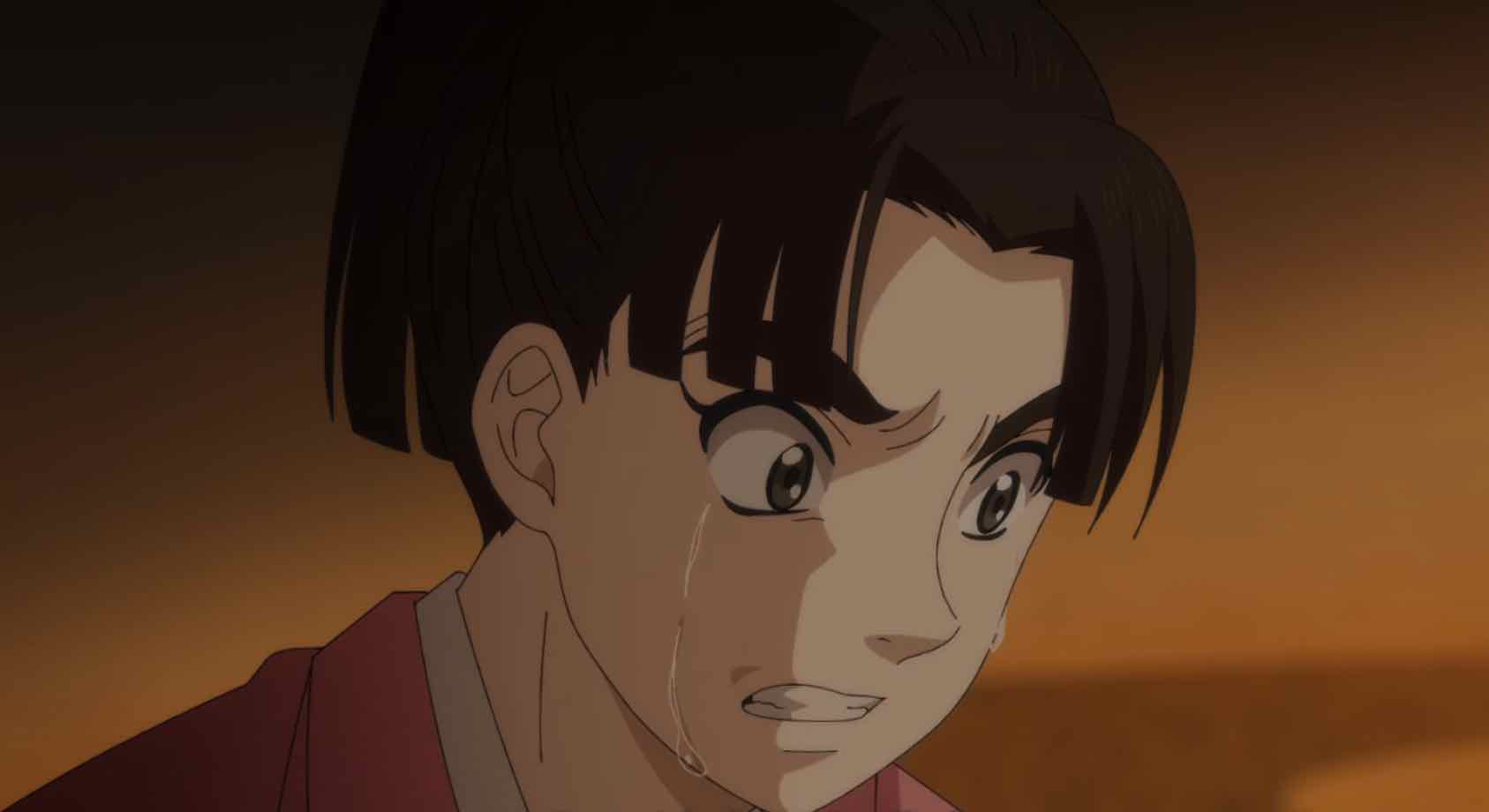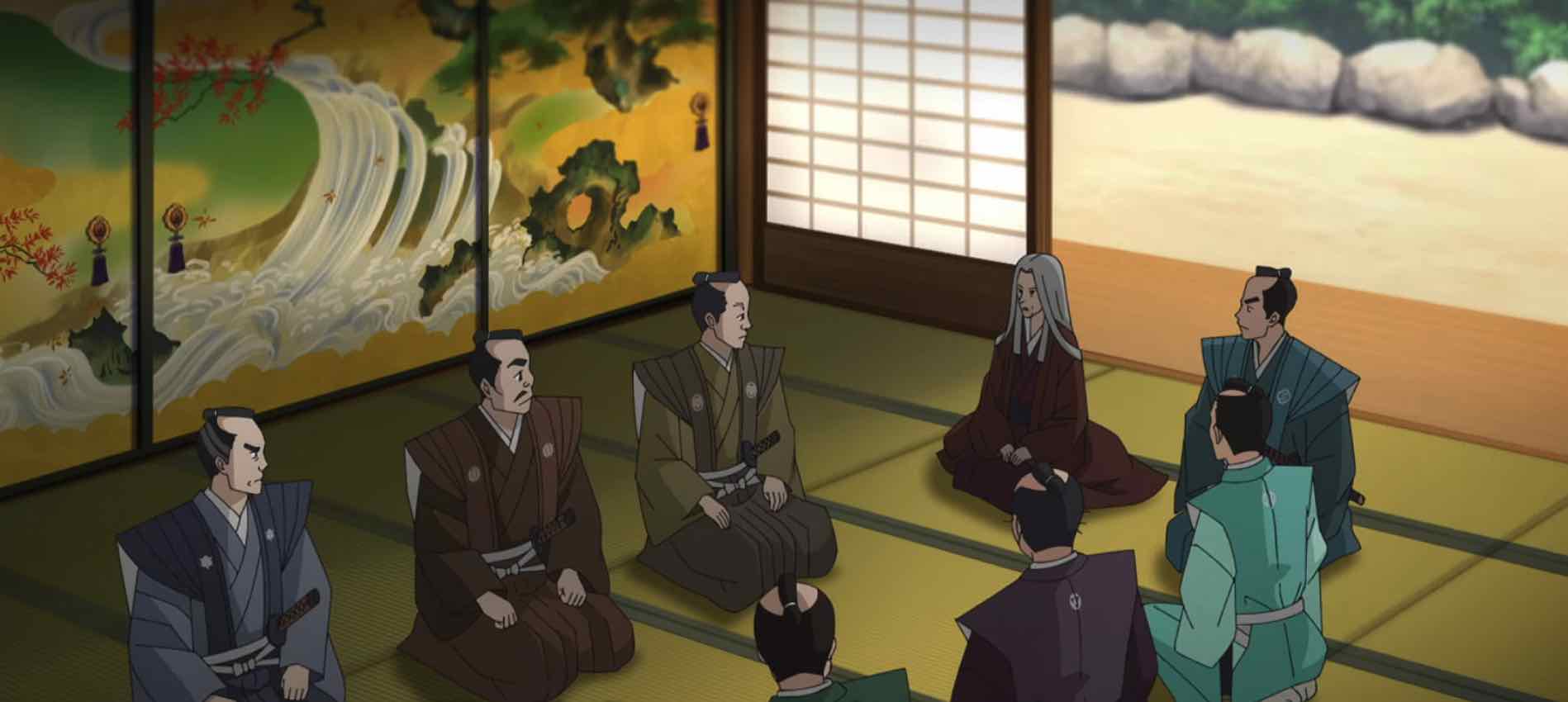This is not an upbeat series, that’s for sure. What I’m seeing as much as anything is a kind of pay it forward with bad karma, which I guess is about as Buddhist as it gets. That, and people being corrupted by the corruption that exists all around them. That’s certainly the case at Edo Castle and the Oooku, where Kasuga’s twisted worldview seeps into everything like black mold in a Japanese apartment. It’s fascinating to be sure, but it can also be exhausting at times.
That’s exacerbated by the fact that I don’t really like any of these people. Oooku blurs the line between victim and victimizer quite intentionally, because that’s what the sort if world it depicts does. When it comes to someone like Iemitsu I certainly have empathy for her. Life has dealt her a pretty shitty hand in most respects. But that’s not the same as liking someone, and that distinction matters with fiction. Yuunoshin and Yoshimune were really the last two characters I felt differently about, and they haven’t been seen since the first episode.
Arikoto is a tough one to place on that spectrum. He certainly walked into the castle with his values firmly in place, but he kind of falls into that same empathy/likability detach. Whatever he was before he’s now the sort of man that will stay silent as an innocent (of what he was specifically accused of, anyway) man is forced to commit seppuku, in order to protect someone he likes better. I’m kind of with Gyokuei on this to be honest – for what he did, Arikoto should be blaming him. Not himself. Gyokuei is no saint but he is at least pretty true to himself. He’s a schemer and a sneak and he doesn’t really pretend to be anything else.
That whole sequence where Iemitsu made her grooms don makeup and kimono and dance was pretty grotesque, exactly as I think it was supposed to be. Iemitsu is turning out to be better at politics than anyone gave her credit for. Her approach to the worsening pandemic is to use the Christians of Nagasaki as a means of covering it up, and to exploit it and the weakness it creates among her vassal lords to centralize power within the shogunate. It’s practical and clever but extremely ruthless and opportunistic.
Arikoto and Iemitsu finally coming to love each other is well and good for them, but the lack of an heir is really all Kasuga cares about. The focus shifts back to the townsfolk, where a young man named Sutezou (Fukuyama Jun) – somewhat reminiscently of Yuunoshin – sleeps around with the local merchants’ daughters and rakes in the cash. The similarity between them pretty much ends there, though. Sutezou is pretty cold-hearted and certainly doesn’t have a local sweetheart he longs to marry – he’s all about working the situation however it offers maximum benefit to himself (and his parents, eventually).
For Sutezou, however, the thing that defines his fate is his resemblance to Arikoto. That eventually draws the attention of Kasuga, who sees it as a potential means of solving her pregnancy problem. I think it’s very likely Kasuga doesn’t understand the depth of feeling between Iemitsu and Arikoto by now, but I don’t think it’d matter if she did. Her feelings for her “granddaughter” are secondary concerns at best – indeed, she’s had her biological son at her size this whole time and doubtless cares more for him than the clan she joined only as a wet nurse. Her duty to preserve the Tokugawa bloodline is one she’s obsessed with, but familial love has nothing to do with it.
Oooku takes great pains to show us how people get to be who they are. With Arikoto it’s quite a deliberate process, with others like Kasuga and Iemitsu it comes more suddenly vis flashback. But none of it is just passed off as “they were just born that way” (apart perhaps from the original Iemitsu). These people are products of their circumstances, and the circumstances in this alternate version of Japan are increasingly strange and dire. Again, this falls closer to real history than might be assumed, but Oooku uses the insulation the veneer of fantasy provides to full effect.






